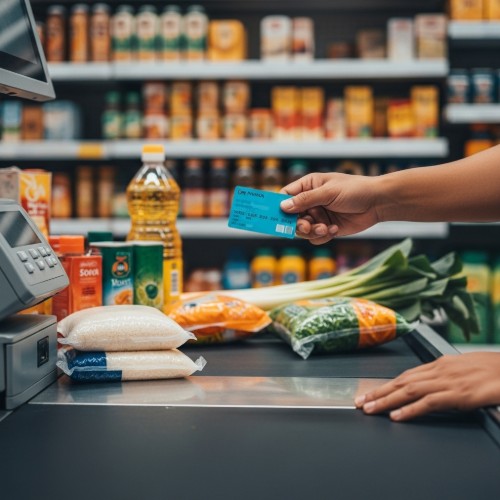3 Key Impacts of Malaysia’s Fuel Price Cut and Cash Aid
Malaysia Fuel Price Cut and Cash Aid Impacts are becoming a major talking point among citizens, businesses, and economists alike. Recently, Prime Minister Anwar Ibrahim announced the reduction of RON95 petrol prices to RM1.99 per litre for eligible Malaysians, alongside cash assistance via the Sumbangan Asas Rahmah (Sara) programme. This initiative allows recipients to use MyKad to purchase essential goods at selected stores, aiming to ease the burden of rising living costs and support national economic stability amid global uncertainties.
Why Is Malaysia Cutting Fuel Prices Now?
The fuel price reduction is a strategic decision driven by multiple economic and social factors, including:
- Rising cost of living pressures due to global fuel price volatility
- Government’s commitment to assist low and middle-income households
- Stimulating domestic consumption to sustain economic growth
1. Easing Financial Burden on Malaysians
One of the most immediate impacts of the fuel price cut is its direct benefit to household budgets, especially for:
- Low-income groups relying on motorbikes and small vehicles for daily commuting
- Middle-income families facing inflation on essential goods and services
- Rural communities with limited access to public transportation options
For example, a daily commuter spending RM200 monthly on RON95 petrol can save approximately RM30-50 monthly with the revised price, translating to RM360-600 annually. These savings can be redirected towards groceries, school fees, or emergency funds, enhancing overall financial resilience.
2. Stimulating Consumer Spending and the Economy
Economists view the fuel price cut combined with the Sara cash aid programme as a dual approach to boost domestic demand. Here’s how it works:
- Fuel savings increase disposable income, enabling higher spending on other goods and services
- The Sara cash aid, redeemable via MyKad at selected stores, drives targeted consumption in essential retail sectors
- Increased retail activity supports SME revenue and job security across supply chains
According to Bank Negara Malaysia, domestic consumption is a key pillar of Malaysia’s GDP, accounting for over 55% of economic activity. Therefore, policies that enhance consumer purchasing power can maintain growth momentum, particularly in uncertain global environments where exports and external investments may be volatile.
3. Strengthening Social Welfare and Inclusivity
The Sara cash aid programme under Sumbangan Asas Rahmah demonstrates Malaysia’s efforts to build a more inclusive social safety net. Key features include:
- Targeted eligibility, ensuring aid reaches vulnerable households effectively
- Digital integration via MyKad, improving transparency and reducing administrative burdens
- Redemption at participating retailers nationwide, enhancing accessibility for rural recipients
How Does The Sara Programme Work?
The Sara programme provides cash assistance that can be utilised for purchasing essential goods at designated outlets. The integration with MyKad simplifies transactions while ensuring that the funds are used as intended. For many recipients, this system:
- Eliminates the need for physical vouchers or cash distribution queues
- Ensures quick and secure redemption at partnered grocery chains and sundry shops
- Encourages digital literacy and familiarity with e-wallet and cashless payment systems
Potential Challenges Ahead
Despite its positive intentions, the fuel price cut and cash aid policy face implementation and long-term sustainability challenges, such as:
- Ensuring sufficient government fiscal space to fund subsidies without impacting development expenditure
- Preventing unintended market distortions, such as hoarding or selective price hikes by opportunistic retailers
- Managing public expectations for prolonged fuel subsidies amid fluctuating global oil prices
Economic Experts’ Perspectives
Leading economists have weighed in on the policy:
- Dr. Yeah Kim Leng (Sunway University) notes that targeted subsidies are more sustainable than blanket fuel subsidies, ensuring aid reaches those most in need.
- Prof. Geoffrey Williams (Malaysia University of Science and Technology) emphasises that short-term relief must be complemented with long-term wage growth and productivity enhancements.
- Bank Negara Malaysia warns that while fuel subsidies ease consumer burdens, structural reforms remain necessary to address the rising cost of living holistically.
Comparisons with Other ASEAN Countries
Malaysia’s approach to fuel price and cash aid policies differs from neighbouring countries:
- Indonesia: Adjusts fuel prices frequently based on market rates, with limited subsidies for low-income groups
- Thailand: Uses price stabilisation funds to buffer domestic fuel prices against sudden spikes
- Singapore: Minimal subsidies due to reliance on market pricing and emphasis on public transport infrastructure
Long-Term Outlook for Malaysia’s Economy
Experts suggest that while fuel price cuts and cash aid provide immediate relief, Malaysia’s sustainable economic stability depends on:
- Enhancing food security to reduce import dependency and inflation vulnerability
- Upskilling the workforce to achieve higher productivity and income levels
- Expanding renewable energy investments to diversify fuel price risks in the future
Conclusion: Balancing Relief with Resilience
The Malaysia Fuel Price Cut and Cash Aid Impacts extend beyond mere headline relief. While citizens benefit from lower petrol prices and cash assistance to purchase daily essentials, these policies also stimulate consumer spending and economic activity. However, their success will depend on effective implementation, fiscal sustainability, and complementary structural reforms to ensure long-term resilience against global uncertainties.
As Malaysians enjoy the immediate benefits, policymakers are reminded that strategic planning for food security, renewable energy, and productivity growth remains crucial to ensuring these relief measures translate into sustained national prosperity.



